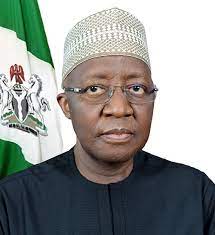…..Tasks TCN, GenCos, DisCos On Value-Chain Obligations
The Nigerian Electricity Regulatory Commission (NERC) has assured electricity consumers in the country of its renewed regulatory initiatives to ensure sustainable electricity in the country by partnering all players and stakeholders in the power sector value chain to strengthen the national grid through investments and other operational requirements.
The NERC’s Chairman, Engr. Sanusi Garba, made the promise yesterday in his closing remarks during the public hearing convened by the commission to address pressing issues within the Nigerian Electricity Supply Industry (NESI), especially in the face of recent power outages occasioned by the collapses of national grid.
Sanusi, who served as the chief moderator during the public hearing that featured key players in the power sector, including the representatives of the Transmission Company of Nigeria (TCN), power generation companies (GenCos), distribution companies (DisCos), civil society organisations (CSOs), and top industry experts, explained that the regulatory commission would do its best to address the key challenges identified as largely responsible for incessant collapse of the grid through collaborative efforts.
Noting that the challenges primarily depend on investment and technological lapses in the transmission link in the value chain, the industry expert maintained that the TCN, GenCos and DisCos must be ready to improve their performances in order to boost power supply for national needs.
According to him, the frequent national grid collapse is totally undesirable for national development in view of the negative impacts electricity supply to customers, including manufacturers, traders, transporters and other players in the political economy.
Garba pointed out that the ugly situation cannot be tolerated, hence the need for the TCN, GenCos, DisCos, the National Assembly and the fiscal authorities to jointly work and make electricity supply stable as required to boost productivity and national development.
He expatiated: “The reality is that what is truly happening with the national grid is impacting on the viability of not only the Gencos that generate the energy and capacity but also the distribution companies. But most importantly, it’s also impacting the quality of supplies and customers.
“Just one piece of equipment had an issue and the whole country is in a blackout. What is your understanding of why it caught fire? We do not spend millions of dollars buying equipment only for you not to have sufficient protection for such equipment to catch fire. We have had recent instances of huge transformers catching fire as if it is just a bale of cotton, so what measures do we have to make sure this does not happen again? You have a prescription but no solution.
“We read all over the place about manufacturing in Nigeria. I mean, if you cannot deliver the right quality of supply to the real sector, then we’re going to be working on a market that is simply relying on residential customers. And even residential customers don’t consider the performance of the sector good enough.
“This thing that happened last year, last two years, last three years, the last four years happened this year. It is as if we don’t want to move forward intentionally”, the NERC chairman added.
Earlier in her paper presentation, the Executive Director of TCN’s Independent System Operator (ISO), Mrs. Nafisat Ali, identified maintenance gaps due to inadequate funding as largely responsible for the hitches in the transmission chain and the low quality of power supply over the years.
For instance, she disclosed that TCN required over N3.2 billion monthly for spinning reserves and other grid maintenance but that the fund was not always readable available even as she accused inconsistent coordination among power generation, transmission, and distribution sectors as another big problem constraining power supply nationwide.
According to her, the TCN today is facing the challenges of inadequate equipment, outdated transformers, and inadequate Supervisory Control and Data Acquisition (SCADA) and communication systems, thereby significantly undermining the company’s performance.
In her contribution, the Chief Executive Officer of the Association of Power Generation Companies, Dr. Joy Ogaji, also spoke on how the challenges of the TCN were negatively affecting the operations of the GenCos
For instance, Ogaji said that since 2014 the national grid had collapsed 162 times, stressing that that relying solely on a free governor mode of operation is not adequate t to address frequency fluctuations, which often disrupt power generation from time to time
Having listened to contributions from other speakers, who mostly identified the TCN as the weakest in the power sector value chain, the NERC’s Chairman restated the Commission’s commitment to addressing the root causes of grid disruptions and ensuring that the right solutions were proffered to ensure that power generation target of 6,000 megawatts by the end of this year is achieved
Garba said: “Today, we are also very much passionate about identifying short term and medium-term action that we need to take following the hearing and also the submission that we will be receiving.
“We’ll look at the PIP again and make sure that some of the urgent things that we need to do today to mitigate the risk of this story of system collapse, a national embarrassment is the story of the past”, he assured.






